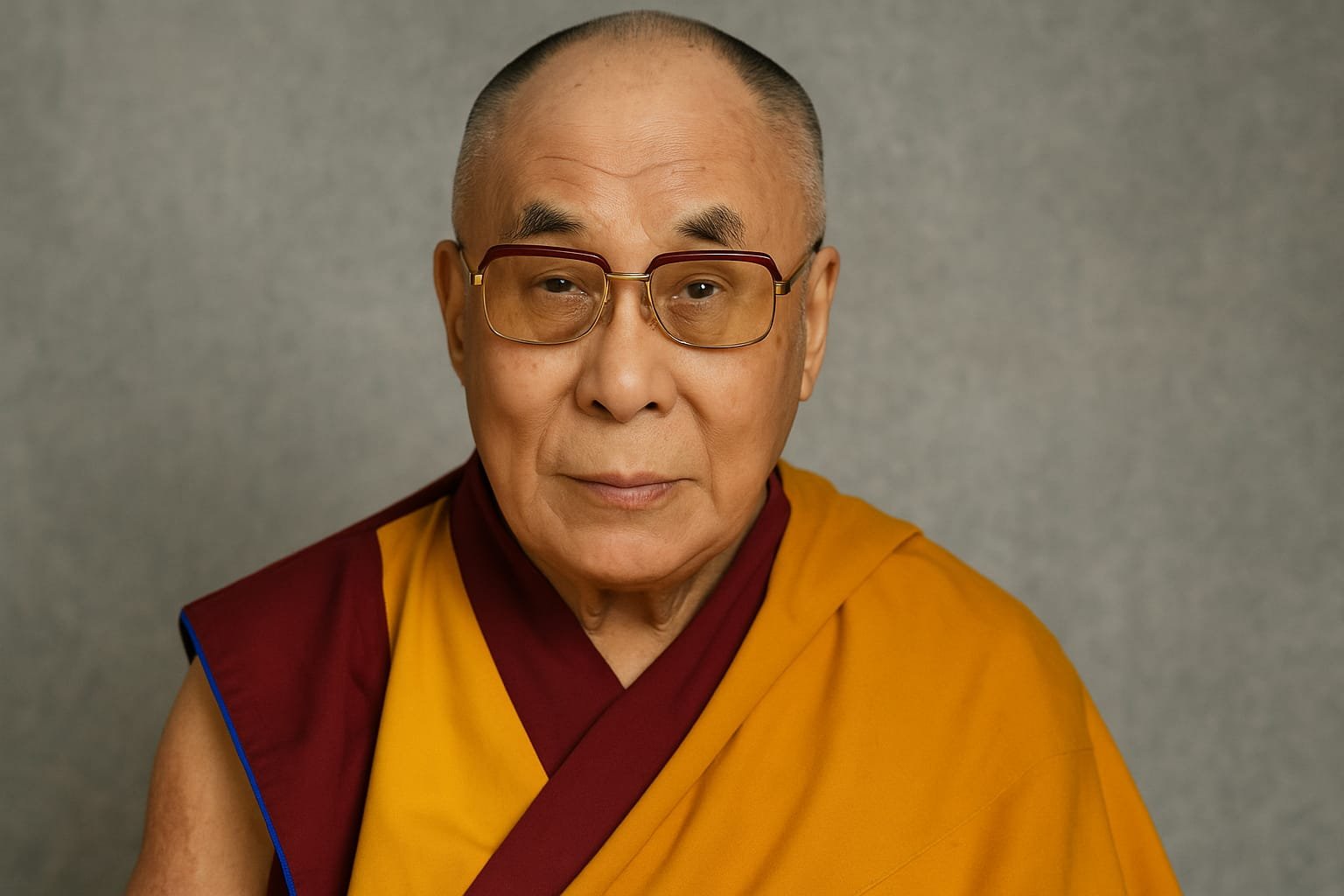
The Dalai Lama is not just a spiritual leader for millions of Tibetan Buddhists; he is also a global figure of peace, wisdom, and moral courage. In a time when political conflicts and cultural divisions dominate the headlines, the presence and message of the Dalai Lama continue to shine as a guiding light. His teachings and actions go far beyond the borders of Tibet. They speak to people across the world, regardless of religion, nationality, or political belief. But now, as the 14th Dalai Lama grows older, the question of his succession has become not only a religious matter but also a sensitive political issue that holds global importance.
In Tibetan Buddhism, the Dalai Lama is believed to be the reincarnation of Avalokiteshvara, the bodhisattva of compassion. This means that when one Dalai Lama dies, another is born to carry forward the teachings and spirit of compassion and wisdom. However, this peaceful spiritual tradition is now facing pressure from political forces, especially from China, which controls Tibet and wants to play a role in choosing the next Dalai Lama. This has caused global concern because many people fear that political motives will interfere with a deeply religious process.
For Tibetans, the Dalai Lama is more than just a teacher. He is a symbol of identity, unity, and hope. Since 1959, when the 14th Dalai Lama fled Tibet and took shelter in India after a failed uprising against Chinese rule, he has led the Tibetan movement for autonomy and cultural survival from exile. His presence in India has helped preserve the Tibetan language, culture, and spiritual practices, all of which are slowly being suppressed in Tibet. In exile, the Dalai Lama has built a strong community and inspired a new generation to keep their traditions alive.
At the global level, the Dalai Lama has become one of the most respected figures of the 20th and 21st centuries. He was awarded the Nobel Peace Prize in 1989 for his nonviolent struggle for the freedom of Tibet and his efforts to promote peace and human values. He has traveled to over 60 countries, met world leaders, spoken at universities, and addressed parliaments. His teachings on compassion, kindness, mindfulness, and interfaith dialogue have influenced millions, including many who are not Buddhists. He talks about global problems like climate change, inequality, and war from a moral and human point of view.
Today, the question of who will be the next Dalai Lama has become a serious global issue. China has made it clear that it wants to control the process of selecting the next spiritual leader, perhaps to weaken the Tibetan resistance and to gain more political control over religious institutions. In contrast, the Dalai Lama and the Tibetan community believe that the decision must be spiritual and free from political interference. The 14th Dalai Lama has even said that he might choose his successor while he is still alive, breaking tradition but ensuring spiritual legitimacy. There is also a possibility that the next Dalai Lama could be born outside Tibet, maybe even in India, which has hosted the Tibetan community for over six decades.
If the next Dalai Lama is born in India, as many expect, it would make India not just a host but also a spiritual guardian of the Tibetan heritage. This would bring new responsibilities and challenges for India in its relations with China and its role in international diplomacy. It would also strengthen India’s image as a land of religious freedom and diversity. At the same time, it would test India's commitment to protect the spiritual identity of a people who have lived in exile on its land for more than 60 years.
The issue of succession is not just about one person. It is about whether ancient traditions can survive in a world dominated by power politics. It is about whether spirituality can stay independent in the face of state control. And it is about whether the international community will stand up for freedom of belief and conscience.
Even as new generations grow up in exile, many young Tibetans still look up to the Dalai Lama as a father figure. Among them, the idea of returning to Tibet may have faded, but their connection to the Dalai Lama has not. His words, prayers, and example have become the moral glue that binds a scattered people together. For them, losing the Dalai Lama’s spiritual leadership would be like losing their roots.
In today’s troubled world, where peace is rare and divisions are growing, the message of the Dalai Lama is more important than ever. He reminds us that real power lies not in weapons or wealth but in compassion, wisdom, and humility. He teaches that true leadership means serving others, not ruling over them. As the world watches the unfolding story of his succession, it must remember that what is at stake is not only the future of Tibetan Buddhism but also the global values of freedom, peace, and moral truth.





















